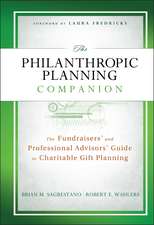Principles of Project Finance
Autor E. R. Yescombeen Limba Engleză Hardback – 9 dec 2013
- Provides a basic introduction to project finance and its relationship with other financing techniques
- Describes and explains: sources of project finance; typical commercial contracts (e.g., for construction of the project and sale of its product or services) and their effects on project-finance structures; project-finance risk assessment from the points of view of lenders, investors, and other project parties; how lenders and investors evaluate the risks and returns on a project; the rôle of the public sector in public-private partnerships and other privately-financed infrastructure projects; how all these issues are dealt with in the financing agreements
Preț: 433.80 lei
Preț vechi: 552.30 lei
-21% Nou
Puncte Express: 651
Preț estimativ în valută:
83.03€ • 90.22$ • 69.79£
83.03€ • 90.22$ • 69.79£
Carte tipărită la comandă
Livrare economică 15-29 aprilie
Livrare express 15-21 martie pentru 87.38 lei
Preluare comenzi: 021 569.72.76
Specificații
ISBN-13: 9780123910585
ISBN-10: 0123910587
Pagini: 578
Dimensiuni: 152 x 229 x 33 mm
Greutate: 1 kg
Ediția:Revised
Editura: ELSEVIER SCIENCE
ISBN-10: 0123910587
Pagini: 578
Dimensiuni: 152 x 229 x 33 mm
Greutate: 1 kg
Ediția:Revised
Editura: ELSEVIER SCIENCE
Public țintă
Private sector investors and lenders who intend to make project finance deals. Upper-division undergraduates and graduate students worldwide working in subjects studying the financing of large-scale single projects. These students are typically interested in working in the finance departments of large corporations or in structured finance departments of large commercial banks.Cuprins
1. Introduction 2. What is Project Finance? 3. Project Development and Management 4. The Project-Finance Markets5. Working with Lenders 6. Types of Project Agreement 7. Common Aspects of Project Agreements 8. Sub-Contracts and Other Related Agreements 9. Commercial Risks 10. Macro-Economic Risks 11. Regulatory and Political Risks 12. Financial Structuring 13. The Financial Model 14. Project-Finance Loan Documentation 15. Public-Sector Financial Support 16. Export-Credit Agencies and Development-Finance Institutions 17. Recent Market Developments and Prospects for Project Finance
Recenzii
"This book provides a concise, accurate, and updated context of project finance. Not only it is a favoured reference for project entrepreneurs, financial controllers and government regulators, but it is also a highly recommended reading for students in business and civil engineering." --Shiguang Ma, University of Wollongong
"Yescombe’s book is the best compendium of project finance concepts I know of. Principles is a detailed 'cook-book' for organizing project financings, comprehensive in its description of risks, contracts, and project participants, including sponsors, capital providers, and public and multinational institutions." --Ray Hill, Emory University
"This book is clear enough for the novice and comprehensive enough for the expert. It covers all areas in project finance and does so precisely. It is a must for anyone looking to get into project finance." --Alfonso Canella, Brandeis University
"E.R. Yescombe’s new edition of Principles of Project Finance is a state-of-the-art, comprehensive overview, with detailed and balanced coverage of the economic, financial, and legal dimensions of project finance. The book is full of relevant case studies and practical advice to make project financing work in the post-financial crisis environment." --John S. Strong, College of William and Mary
"Yescombe’s book is the best compendium of project finance concepts I know of. Principles is a detailed 'cook-book' for organizing project financings, comprehensive in its description of risks, contracts, and project participants, including sponsors, capital providers, and public and multinational institutions." --Ray Hill, Emory University
"This book is clear enough for the novice and comprehensive enough for the expert. It covers all areas in project finance and does so precisely. It is a must for anyone looking to get into project finance." --Alfonso Canella, Brandeis University
"E.R. Yescombe’s new edition of Principles of Project Finance is a state-of-the-art, comprehensive overview, with detailed and balanced coverage of the economic, financial, and legal dimensions of project finance. The book is full of relevant case studies and practical advice to make project financing work in the post-financial crisis environment." --John S. Strong, College of William and Mary













